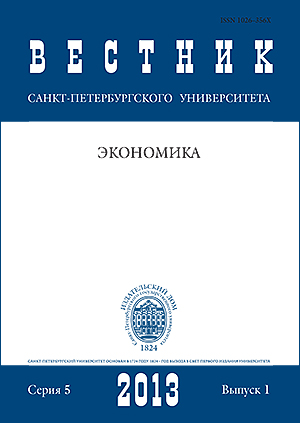Instability of Employment: Theoretical Concept and Assessment of its Scale in Russia
Abstract
The article is devoted to the analysis of a new phenomenon in economic research in Russia — instability (precarization) of employment. The latter is considered to be a typical feature of modern employment relations which worsens quality of the economic growth. Instability of employment is seen as a condition for increasing the levels of uncertainty and risk on the labour market, and a job ceases to serve as a medium- and long-term source of life-planning for economically active population. This problem is in the forefront of Western European researches. There is a need to elaborate common approaches and criteria to study instability of employment, when comparing different countries. The economic approach proposed in the article develops the theoretical concept of employment instability. The approach is based on recognition and estimation of two objective features of employment instability: volatility and discreteness of employment income. Quantitative assessment of employment instability in Russia is introduced including its scale evaluation.
Keywords:
employment instability, precarization of employment, employment, economic approach, contemporary labour relations, quantitative assessment of scale, labor market in Russia
Downloads
References
References in Latin Alphabet
Translation of references in Russian into English
Downloads
Published
How to Cite
Issue
Section
License
Articles of the St Petersburg University Journal of Economic Studies are open access distributed under the terms of the License Agreement with Saint Petersburg State University, which permits to the authors unrestricted distribution and self-archiving free of charge.






